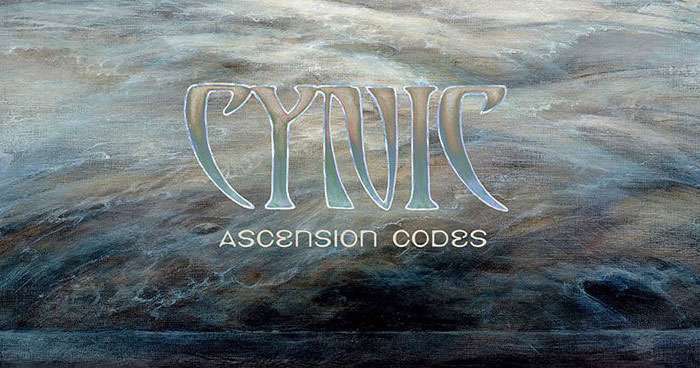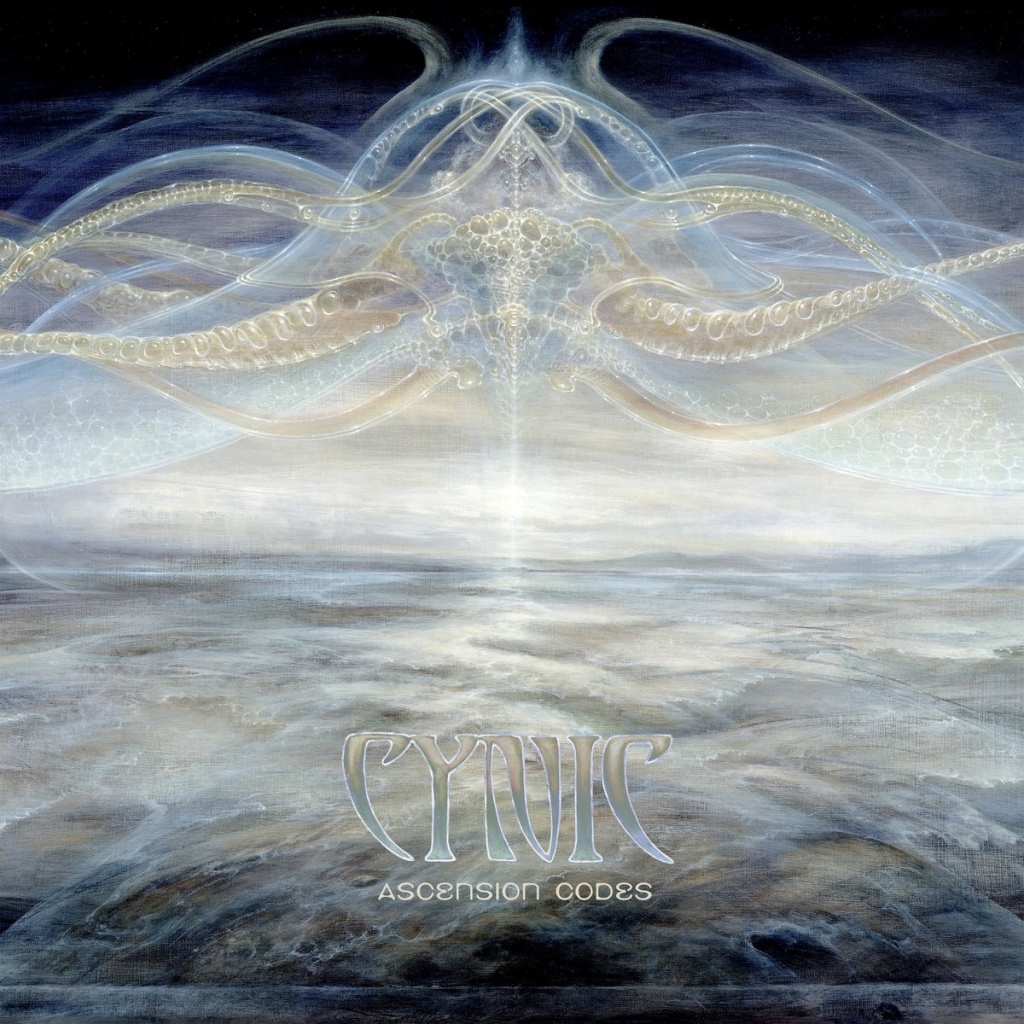
This album came out almost a year ago at the time of this review, but was very difficult to write about upon initial release. Prior to its release, Cynic, and in turn Cynic’s fan base we’re going through difficult times. From social media fights between singer/guitarist Paul Masvidal and drummer Sean Reinert, that ended with Sean leaving the band and Paul taking full control of the band, to the passing of not only Sean, but also long time bassist Sean Malone within a year of each other. The future of the band was uncertain to say the least, but Paul was determined to continue while mourning the loss of two friends.
After Sean Reinert left the band, Matt Lynch of Trioscapes fame (and currently Intronaut as well) replaced him in 2015. And for this album, Dave Mackay took over bass duties on synthesizers, as well as added a new element to Cynic with keyboard solos. Interestingly, the band has experimented with guitar synths in the past, so they’ve gone from having guitars sounding like keyboards to having keyboards sounding like bass. In addition to the trio are a plethora of guest musicians including Plini providing guitar solos and former Cynic alumni Max Phelps providing backup vocals.
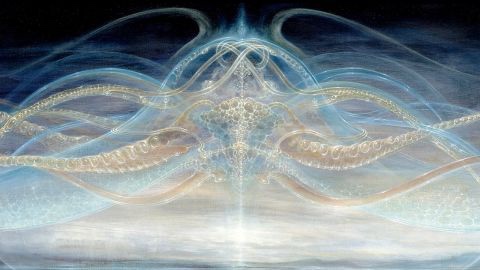
The album is an 18 track endeavor clocking in at about 49 minutes. This is because of an intro, an outro, and an interlude between every main song. These are the “codes” referred to in the album’s title. But I must state that I am immediately biased against albums that do this format. I understand bands are trying to create a flow or a story with the use of so many interludes, but to me, it most often ruins the flow of an album that can do better with fewer, or the interludes integrated into the main songs somehow. So with these “codes”, that leaves 9 main songs, but really I struggle to call 1 one of them a main song (will explain in a bit), so it brings us to that magic number of 8, the number of tracks the last three Cynic albums have been.
After a 30 second intro, “The Winged Ones” comes in. This is a 5 minute instrumental that honestly could have worked anywhere on the album. It is a great introduction to the album, but it’s beauty and engaging nature could have worked as a closer or somewhere in the middle as well. It reminds me of bands who are heavily influenced by Cynic such as Fallujah, The Facless and The Contortionist, shows off Matt’s incredible drum work, and gives us our first taste of the keyboard/bass tones. The keyboard solos have an old school feel to them, sounding like they belong in the 80s rather than a Cynic album, but don’t sound out of place enough to hinder the enjoyment of the listener.
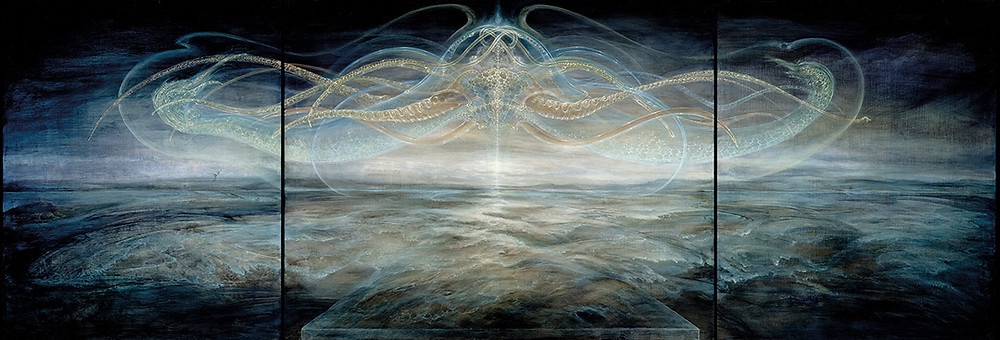
Rather then going straight into the next track, we can already start to see the hindrance of going into an interlude, loosing all that momentum. “Elements and Their Inhabitants” would have perfectly come after “The Winged Ones”. It picks up with that lost momentum sounding more like Cynic. The vocoder vocals come in as well as frantic guitar picking and drumming, which lays out for a beautiful Pat Metheny style guitar solo. Their are few vocals and they are hard to decipher. So by the time the next interlude comes to a close, you’ve had five tracks already, but nothing really to sing along with yet.
“Mythical Serpents” is a classic Cynic track. On par with anything from Traced in Air, my favorite album by the band, it has memorable melodies, tons of dynamics, and the right amount of ambience. It finally feels like the album was reaching what it was leading up to. Unfortunately, after a long fade-out, and another interlude, it is up to the next song to try and pick up the momentum. And while I feel “6th Dimensional Archetype” is an interesting track, it’s verse is the catchy hook with no chorus to tie it all together. It has potential, but ultimately fades away without reaching it.
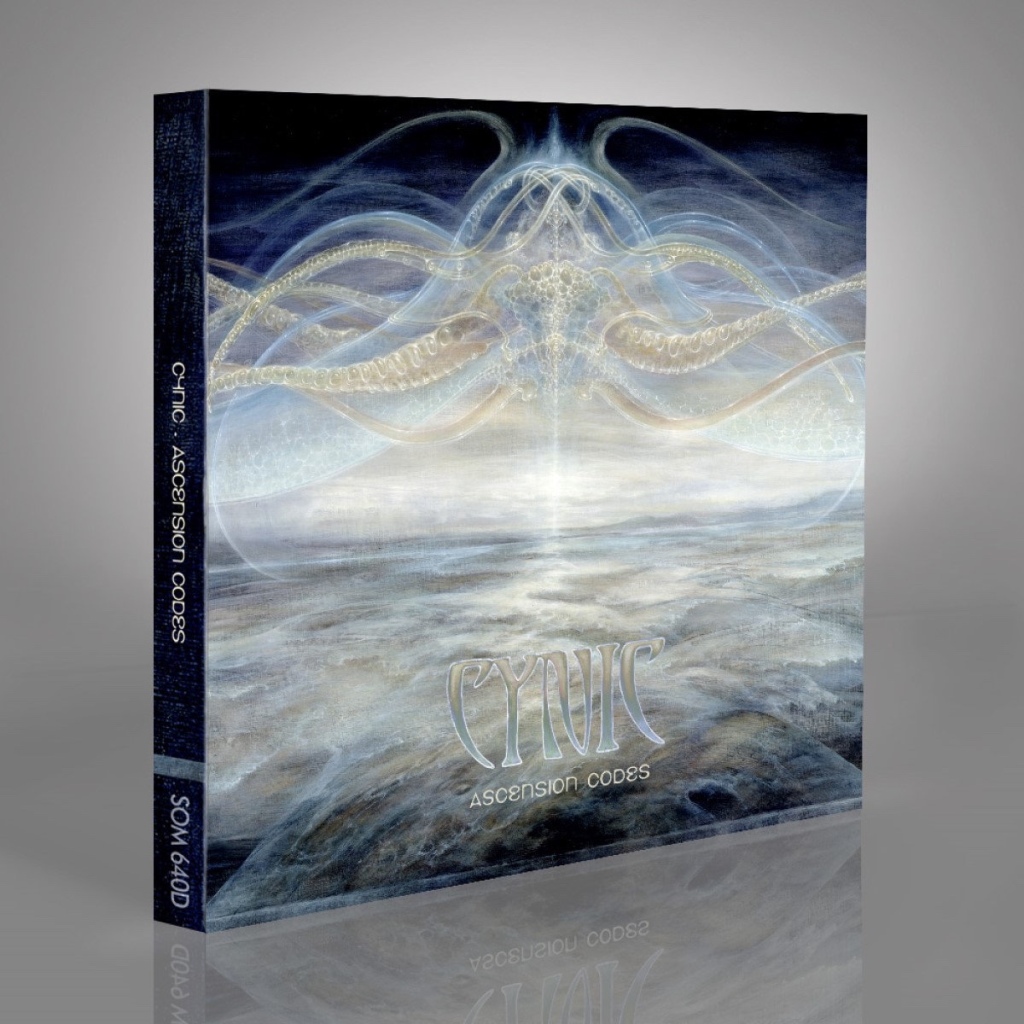
This unfortunately leads to the most throwaway track of the album. “DNA Activation Template” on paper looks like one of the main tracks, but actually starts with 4 minutes of alien like sound effects. The last minute of the track is music that sounds similar to “The Winged Ones”. If it was just the music by itself it would have been fine. But that much silence, including another interlude right after it, in the middle of the album creates such a dip in the experience.
“Architects of Consiousness” is another great song that has memorable vocals lines like “Mythical Serpents” did, and sounds like classic Cynic if it wasn’t for an upfront and almost cheesy keyboard tone that doesn’t work as well as the time in “The Winged Ones”. “Aurora” on the other hand, might be the best song on the album. Sounding not only like Traced in Air, but also like Paul’s side project Aeon Spoke. The vocals are clear, the production is beautiful, and it doesn’t meander. It is possibly the most focused song.
“In a Multiverse Where Atoms Sing” is a frantic piece, combining drum and bass electronic rhythms, mathcore riffs, and all that you expect from Cynic in a 3 minute package. The major key and uplifting tones remind me of the best moments from the bands previous release, Kindly Bent to Free Us. Finally, “Diamond Light Body” is a perfect closer with its build up and repeated melody.
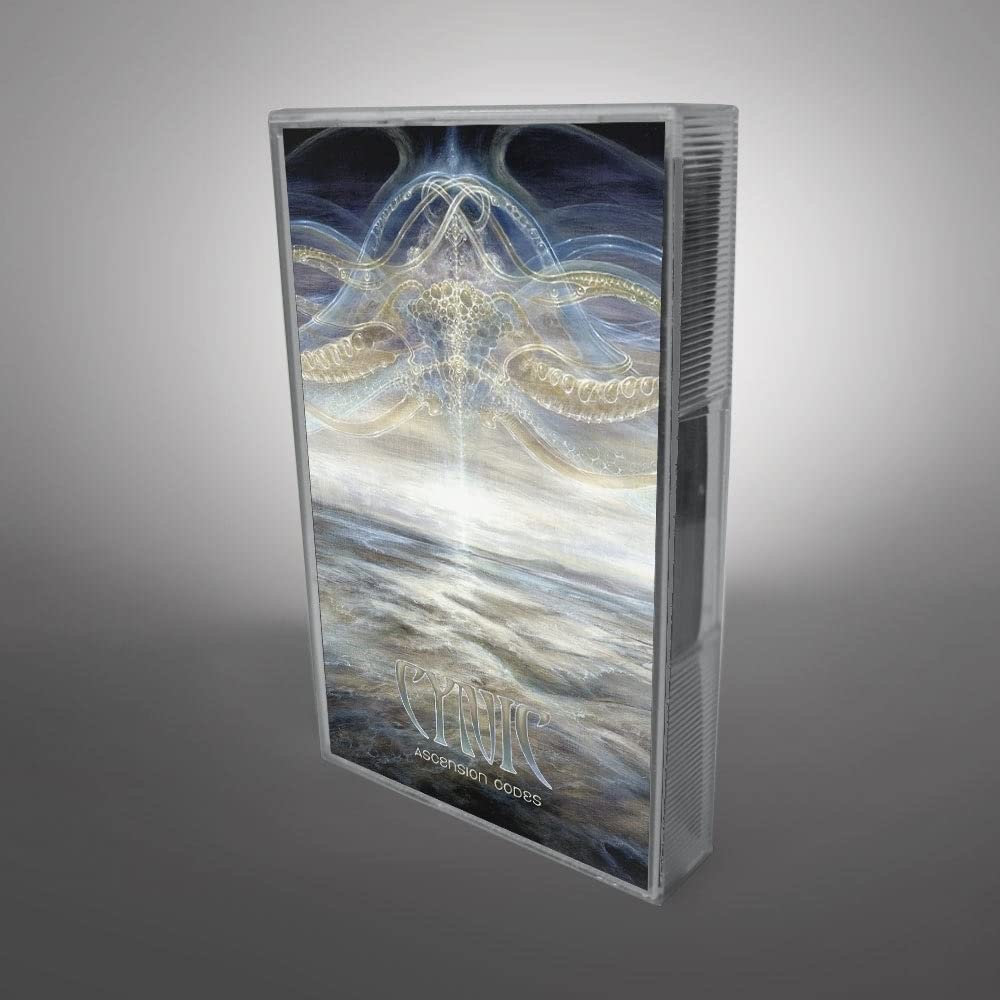
Upon first glance, the 18 song track list looks overwhelming, but a first full listen through might make you feel underwhelmed, as if you didn’t cover much ground at all. But with repeated listens, you see the strength of its core 8 tracks, and if I was just reviewing those songs, I would say it’s as strong an album as Kindly Bent to Free Us, maybe even better due to the moments that remind me of Traced in Air. But, the overall experience is more tedious than it needs to be, and kills the pacing it could have had. Plus some out of place keyboard tones take you out of the overall experience. But for a band that didn’t seem like they would have another album, the songwriting and musicianship is top notch, as you would expect from this legendary band. Even through all the changes it has been through, that much will always shine through with Paul at the helm.
